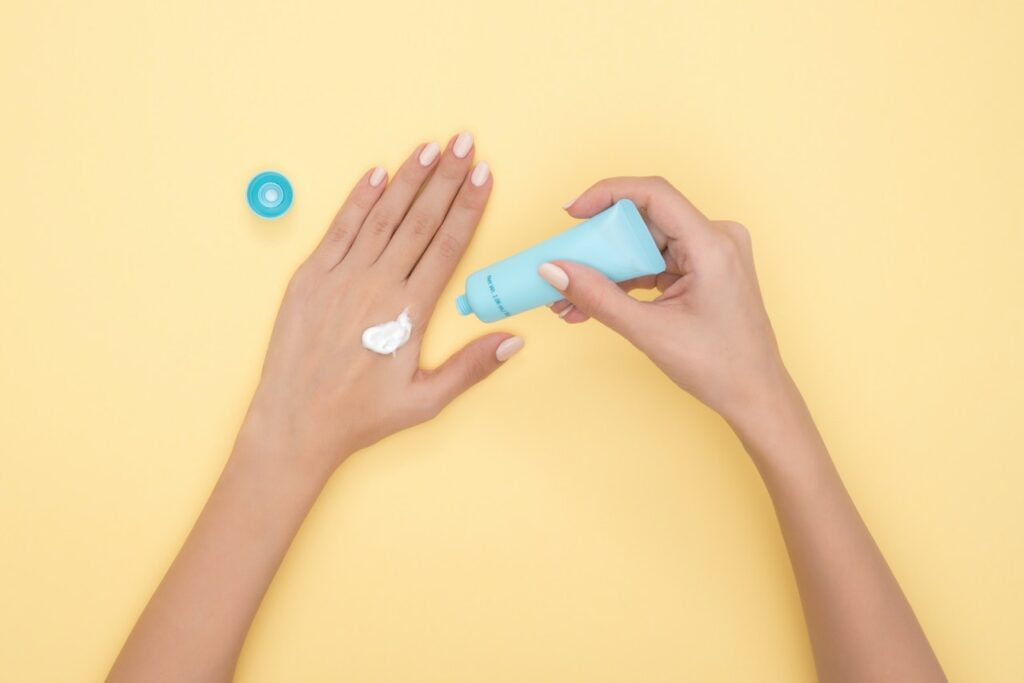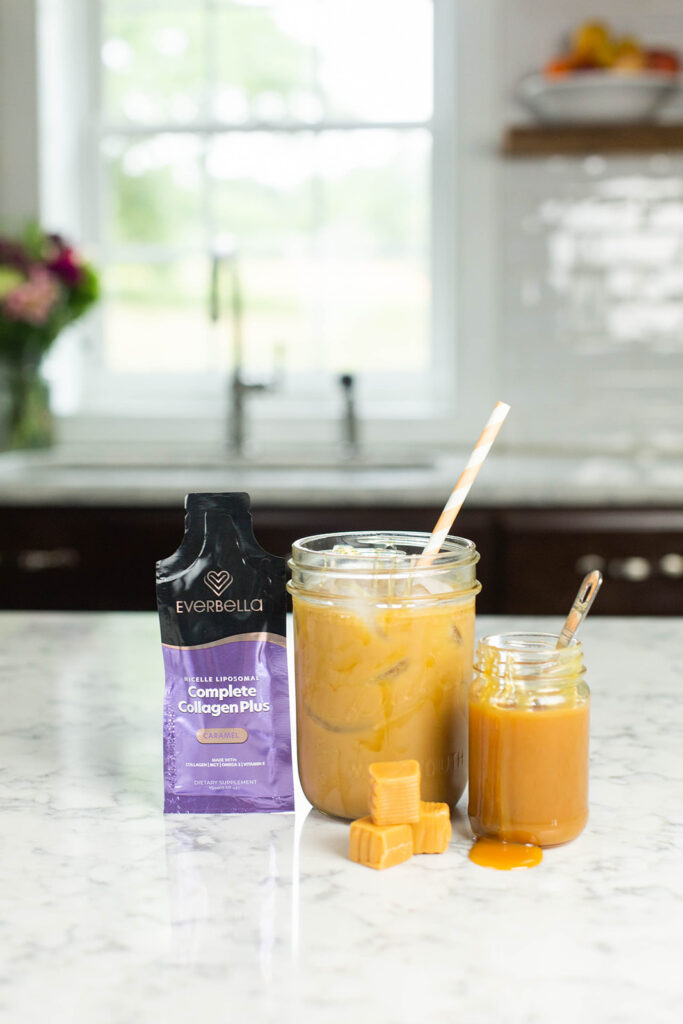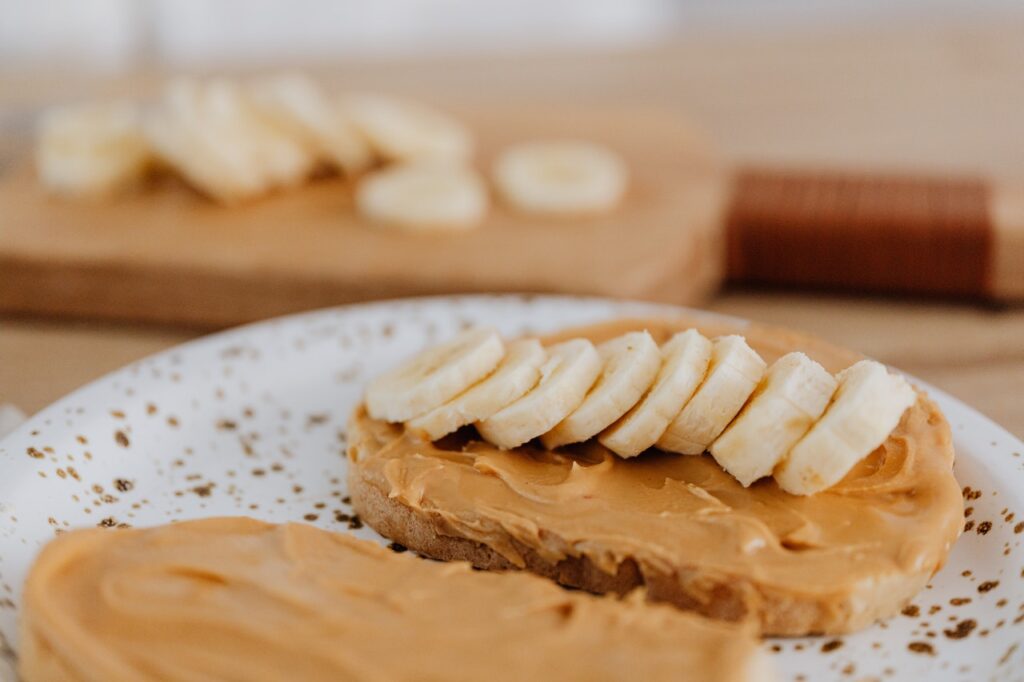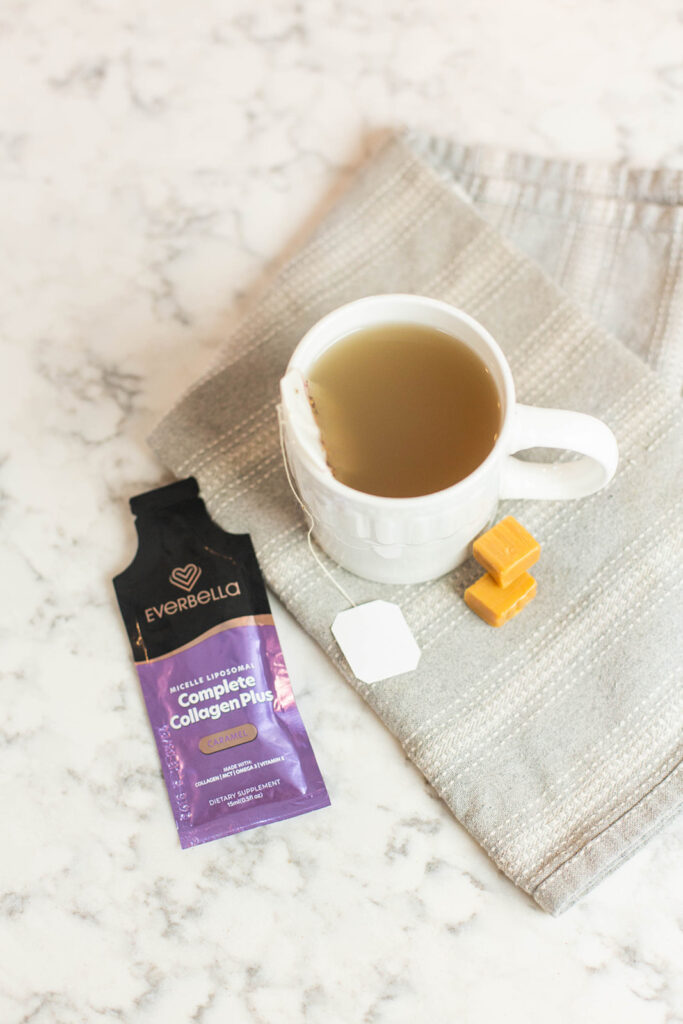Tag: collagen benefits
Protect Your Skin this Winter!
You might think it’s most important to protect your skin from the sun and elements during the hot summer months. However, protecting your skin is important all year round! While it’s true that UV rays are at their strongest in the spring and summer during the mid-day (depending on where you live in the world), this doesn’t mean that you can’t damage your skin during the winter months.
So, here are six crucial steps that I take every winter to keep my skin protected and looking its best, despite the dryness and cold!
1. Don’t Skip the Sunscreen

Did you know that you can get sunburned even when it’s cloudy outside? While the sun’s rays might not seem as severe during the winter months, UVA rays are still able to penetrate the clouds and damage your skin. And, if there’s snow on the ground you might even be at higher risk! The bright drifts of snow reflect the sun’s light, which can allow UV rays to hit your skin even if you aren’t expecting it.
You might not have as much skin available to burn as you bundle up, but it’s important to find a good sunscreen for your face and neck. You’ll want to look for a product that offers at least 30 SPF!
2. Moisturize, moisturize, moisturize
As you probably guessed, moisture is key in the wintertime! And finding good moisturizers and lotions for your skin is crucial.
Pro Tip: Finding a good face and lip moisturizer with SPF is even better!
While you might think it’s only important to moisturize in the morning and night, you might benefit from even more frequent application, especially if you are prone to dry skin. And, if you find your skin is really struggling, try adding a few drops of jojoba or vitamin E oil to your moisturizer or lotion. I keep a travel sized lotion and chapstick with me at all times. It really helps in the dry winter months, and protects my skin from cracks and damage.
3. Drink Lots of Water
Did you know that your body is mostly made up of water? A lot of that water is stored in your skin, to keep it plump and elastic. Additionally, water circulates in our bodies to transport important nutrients, regulate our temperature, and clear toxins from our system. We need a lot of water daily to keep our body and skin healthy!

When you’re dehydrated, water is pulled from your skin to help our internal organs function properly. This can leave it feeling dry, and prone to damage. It is important to stay hydrated to help maintain our skin’s health and appearance. Research has found that improving water intake can be helpful in improving the skin’s appearance, especially for those who are chronically dehydrated. [1] However, skincare expert, Kathleen C. Suozzi, MD, director of aesthetic dermatology at Yale Medicine and assistant professor at Yale School of Medicine in New Haven, Connecticut, notes “Excessive hydration is unlikely to benefit the skin.”
So, aim for about 64 oz of water daily (that’s eight 8 oz glasses of water), to optimally hydrate your body and your skin during the winter months.
4. Don’t Forget Your Lips!

There is nothing more irritating than chapped lips during the winter time. The skin on your lips is quite thin and delicate, making it more susceptible to breakage and moisture loss. You’ll want to prepare for the winter season by finding a good chapstick that offers both moisture and sun protection. That’s right – your lips can get sunburned too, so you’ll want to protect them from UV rays by choosing a chapstick with SPF!
5. Opt for a Humidifier
While it’s true that the cold and dry winter air can certainly cause some strain on your skin, it might not be any better inside. Turning up the temperature and staying cozy inside can actually drain your skin of its moisture, without proper humidification!
If you find yourself stuck inside often during the winter months, it might be a good idea to look for an indoor humidifier! Humidifiers will add moisture to the air, which will also help prevent your skin from drying out when the heat is cranked up.
6. Collagen
Collagen is known to play an important role in our skin’s elasticity, hydration, and texture. We need a lot of collagen to keep ourselves looking and feeling our best. And, considering that natural collagen production drops off around age 20, and continues to decrease over time, it’s important for us to continue to optimize our collagen intake as we age. [1] This decrease can be accelerated even more with certain behaviors, like smoking and exposing the skin excessively to UV light.

Due to this decrease of natural collagen production, there have been many studies to explore the effect of collagen supplementation on improving skin elasticity, hydration, and texture in an aging population. The evidence supports that collagen supplementation is an effective way to increase collagen synthesis and reduce the appearance of aging [2-4].
So, for hydrated and glowing skin all year round, I always opt for my daily dose of Complete Collagen+. It does wonders for my skin, and it’s a staple part of my skincare routine all year round! Give it a try, risk-free, for 180 days with our money back guarantee.
Citations
- “Collagen Synthesis.” Collagen Synthesis – an Overview | ScienceDirect Topics, https://www.sciencedirect.com/topics/engineering/collagen-synthesis.
- Bolke L, Schlippe G, Gerß J, Voss W. A Collagen Supplement Improves Skin Hydration, Elasticity, Roughness, and Density: Results of a Randomized, Placebo-Controlled, Blind Study. Nutrients. 2019;11(10):2494. Published 2019 Oct 17. doi:10.3390/nu11102494
- de Miranda RB, Weimer P, Rossi RC. Effects of hydrolyzed collagen supplementation on skin aging: a systematic review and meta-analysis. Int J Dermatol. 2021 Mar 20. doi: 10.1111/ijd.15518. Epub ahead of print. PMID: 33742704.
- Choi FD, Sung CT, Juhasz ML, Mesinkovsk NA. Oral Collagen Supplementation: A Systematic Review of Dermatological Applications. J Drugs Dermatol. 2019 Jan 1;18(1):9-16. PMID: 30681787.
Foods to Keep you Satisfied for Hours!
There is nothing more frustrating than eating, only to feel starving an hour later! It drives me crazy, and oftentimes, I struggle to feel satisfied…
Not too long ago, I learned that there’s more to healthy eating than just eating the right ingredients. It’s also important to consider our satisfaction with the food choices we make! Otherwise, if we aren’t satisfied, how can we expect to keep up healthy eating for the rest of our lives?
For me, satisfaction means two things:
- Every once in a while, I get to treat my sweet tooth. And…
- I don’t feel hungry all the time.
There are a few healthy eating strategies that I use for encouraging satiety (AKA fullness). They help me keep up on my smart food choices, AND they leave me feeling full, so I’m not mindlessly snacking to satisfy my hunger. Let’s get into it!
Stay Satisfied with Fiber
Fiber is essential for long-lasting satisfaction after meals. There are two main types of fiber – soluble and insoluble fiber. They both have important roles in the maintenance of our health, and in keeping us full and satisfied after meals! Let me explain the difference between these two types of fiber.
Soluble Fiber
This is the type of fiber found in oats, bran, seeds, legumes, and some fruits and veggies. It dissolves in our digestive system as it combines with other solids and liquids, and forms a gel-like substance that binds with other nutrients. This form of fiber offers a few different benefits:

- Soluble fiber binds with cholesterol and prevents it from being absorbed into the bloodstream (thereby preventing accumulation of unhealthy cholesterol in the body). Instead, it is excreted with the rest of your food waste!
- Soluble also can bind with other foods in your stomach, particularly carbohydrates. This can slow down the rate of stomach emptying and absorption of nutrients, which is helpful for controlling blood sugar!
- This slowed digestion also contributes to an extended feeling of fullness, which keeps us feeling satisfied after meals, for longer periods of time! [1]
Insoluble Fiber
You’ll find insoluble fiber in the skins of fruit, vegetables, beans, grains, and legumes (so leave the skins on as often as possible!). Insoluble fiber behaves a bit more differently than soluble fiber. Rather than dissolve into a gel, insoluble fiber maintains its structure. This affects our digestion in a few ways:
- Insoluble fiber can absorb lots of water, which creates a physical fullness. Meaning that water takes up a lot of space, and can give us that feeling of fullness.
- The added moisture and bulk to the food we digest can help aid digestion, and keeps us… Well, you know, regular. No complaints there! [1]
If you ever significantly increase the amount of fiber in your diet, you’ll want to make sure you increase your water intake. This will help you absorb and use the fiber to your benefit, otherwise you might experience a little extra gassiness and bloating.
Mix your Macros

It’s always important to mix things up, especially when it comes to the macronutrient composition of your meals! When I say macronutrients, I mean the major nutrients that contain calories – carbohydrates, fat, and protein. Here’s how this can help your feelings of satiety and satisfaction…
Your body has to put in a lot of effort to digest and metabolize the food you eat. And different macros are digested and metabolized in different ways:
- Fat is digested slowly, which can definitely help keep you fuller, longer. However, on its own, high fat meals can leave you feeling sluggish and fatigued, and unsurprisingly doesn’t leave you feeling satisfied for very long. Studies have shown that fat alone actually has the least satiating effect, in comparison to carbs and protein. [2] So, it’s best to mix fats with other macros so you’re not feeling full in the next hour.
- All carbs are not created equal. Some carbs, complex carbs, contain a good amount of fiber, which can help keep you full (see above). However, simple carbohydrates have less ability to keep you satiated. These simple carbs usually cover sugars and sweeteners, like table sugar, brown sugar, coconut sugar, agave, honey, and corn syrup. Imagine staying full on just sugar. You can imagine why it’s not the most effective…
- Protein on its own may be the most satiating of the bunch, as dietary protein increases the production of fullness inducing hormones, and decreases the production of our hunger hormones. [3] However, you’ll extend your fullness and satisfaction even more by adding a little extra carb and fat here and there…
So mix your macronutrients! Don’t just eat a carb for breakfast, eat a carb plus a fat, or a carb plus a protein. Skip that high fat dinner, and opt for a more moderate mix of fat plus protein, or fat plus carbs! I think you can catch on at this point…
Adding at least two macronutrients to any meal is an easy, and healthy way to extend your satiety. Even after hours, you’ll still feel satisfied!
Collagen for Satiety
Have you ever heard that collagen may be helpful in promoting weight loss? There are a few reasons that collagen has taken on this reputation, but the simplest reason is related to its effect on satiety.
Ultimately, collagen is a protein. As I mentioned previously, protein may be more satiating because of its influence on satiety inducing hormones, and its suppression of hunger hormones. [3-4] So, after consuming a high protein food item, such as collagen, we may experience an increase in fullness after the meal. Improved satiety and satisfaction after meals can contribute to decreased caloric intake, which can lead to weight loss in some circumstances.
So, there you have it! Three actionable steps you can take today to help keep you satisfied and full, longer! Say goodbye to those hangry moods and mindless snacking, and fuel your body efficiently.

And if you’re searching for a high quality, highly absorbable collagen option… Complete Collagen+ is the way to go. You’ll love the rich caramel flavor (it’s perfect in my morning coffee), and all of its powerful benefits!
Try Complete Collagen+ risk-free, with our 180-day money back guarantee!
Citations
- Gardner, Amanda. “Dietary Fiber: Insoluble and Soluble Fiber.” WebMD, WebMD, 23 July 2015, https://www.webmd.com/diet/features/insoluble-soluble-fiber.
- Samra RA. Fats and Satiety. In: Montmayeur JP, le Coutre J, editors. Fat Detection: Taste, Texture, and Post Ingestive Effects. Boca Raton (FL): CRC Press/Taylor & Francis; 2010. Chapter 15. Available from: https://www.ncbi.nlm.nih.gov/books/NBK53550/
- Moon, Jaecheol, and Gwanpyo Koh. “Clinical Evidence and Mechanisms of High-Protein Diet-Induced Weight Loss.” Journal of obesity & metabolic syndrome vol. 29,3 (2020): 166-173. doi:10.7570/jomes20028
- Hochstenbach-Waelen, Ananda et al. “Single-protein casein and gelatin diets affect energy expenditure similarly but substrate balance and appetite differently in adults.” The Journal of nutrition vol. 139,12 (2009): 2285-92. doi:10.3945/jn.109.110403
